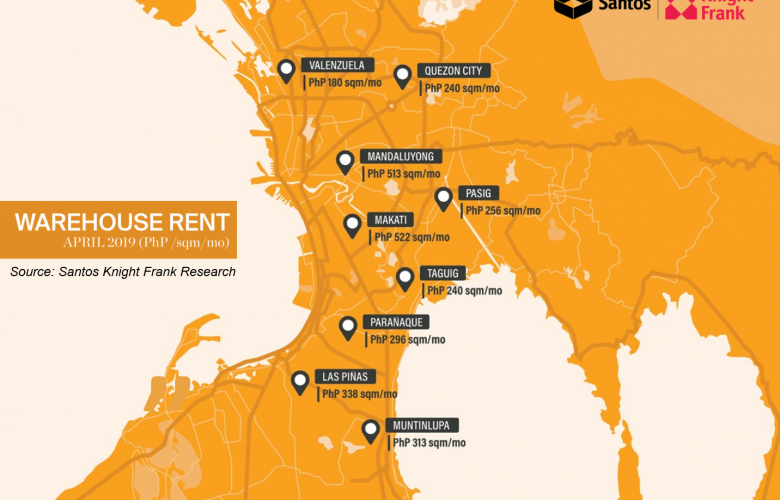A rising middle class, booming e-commerce market and the decentralization trend outside of Metro Manila are shaping the Philippines’ logistics industry and increasing the demand for warehouses and industrial properties, says Santos Knight Frank, the country’s leading real estate advisory firm and service provider.
Santos Knight Frank recently unveiled its latest report, The Future of Logistics: A Real Estate Perspective, which looks at the evolution of Manila’s industrial property sector, new warehouse models and initiatives by developers to capitalize on the growth of the logistics industry.
The logistics sector is a catalyst of economic growth, delivering goods in a nation of more than 7,000 islands. Amid challenges in infrastructure and connectivity, the sector has seen strong demand for last-mile delivery hubs, inner-city distribution centers, cold storage and warehouse facilities, driven by strong domestic consumption from both e-commerce and traditional retail markets.
Decentralization
Santos Knight Frank’s report reveals that despite the rise of land prices in Metro Manila, warehouse rents have remained essentially stagnant. With the present land values, construction costs and lease rates, the traditional warehousing business is increasingly becoming less attractive to investors who seek shorter payback periods.
In addition, available land for industrial real estate in the city has become more limited as traditional industrial areas such as the C5 Quezon City-Pasig City corridor continue to be transformed into mixed-use developments.
Rick Santos, Chairman & CEO of Santos Knight Frank says: “The logistics sector is the next big thing to watch in Philippine real estate as it offers a huge opportunity for developers. With the gentrification of urban areas in Manila and improving infrastructure in the region, areas such as North Luzon/Clark, Calabarzon, Cebu, Bacolod, Iloilo and Mindanao are new hotspots for real estate developments that cater to the logistics industry.”
For industrial real estate projects, developers are now exploring provincial locations which offer larger tracts of developable land and also of reasonable land values. A number of property developers and companies have already entered this playing field, including notable players such as Ayala, SM, Metro Pacific, JG Summit and Filinvest.
New business model
To improve profitability of warehouses in general, operators have offered add-on services and end-to-end solutions to occupiers. Technological innovations, such as the Automated Storage and Retrieval Systems (ASRS), have also made operations more efficient.
Kash Salvador, Associate Director for Investment & Capital Markets of Santos Knight Frank says: “Investors and developers are increasingly looking at innovative ways to leverage the growth of the logistics industry, offering value-added services, solutions and technology to improve efficiency, speed and profitability.”
Salvador continues: “Will technology make warehouses obsolete in the future? Storage will still be critical for an archipelago of more than 7,000 islands, but technology will also continue to shape the form of warehouses that will keep up with the dramatic change in the market.”
Santos Knight Frank is the most trusted property consultant by industrial occupiers and investors in the Philippines, providing a wide range of real estate solutions such as advisory, transactional support, facilities management and appraisal, among other services, over the last 25 years.
For more information about the Manila property market phone or email Rick Santos, Chairman & CEO of Santos Knight Frank via the contact details below.
Similar to this:
Dichotomy in Policy and the effects on real estate in The Philippines
Manila's most expensive at ~ PHP550K (USD10,400*) per sq metre
Arthaland and Colliers sign Leasing Deal for Cebu Exchange










